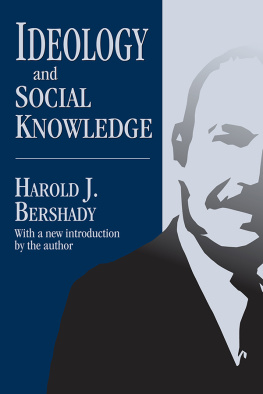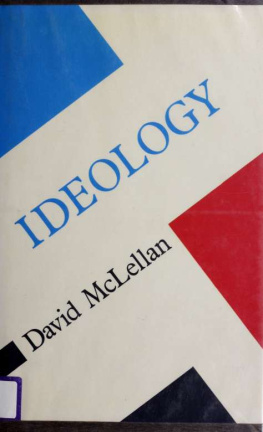First published in 1977
This edition first published in 2015
by Routledge
2 Park Square, Milton Park, Abingdon, Oxon, OX14 4RN
and by Routledge
711 Third Avenue, New York, NY 10017
Routledge is an imprint of the Taylor & Francis Group, an informa business
1977 Eric Carlton
All rights reserved. No part of this book may be reprinted or reproduced or utilised in any form or by any electronic, mechanical, or other means, now known or hereafter invented, including photocopying and recording, or in any information storage or retrieval system, without permission in writing from the publishers.
Trademark notice: Product or corporate names may be trademarks or registered trademarks, and are used only for identification and explanation without intent to infringe.
British Library Cataloguing in Publication Data
A catalogue record for this book is available from the British Library
ISBN: 978-0-415-72731-0 (Set)
eISBN: 978-1-315-76997-4 (Set)
ISBN: 978-1-138-78311-9 (Volume 32)
eISBN: 978-1-315-76358-3 (Volume 32)
Publishers Note
The publisher has gone to great lengths to ensure the quality of this reprint but points out that some imperfections in the original copies may be apparent.
Disclaimer
The publisher has made every effort to trace copyright holders and would welcome correspondence from those they have been unable to trace.
First published in 1977
by Routledge & Kegan Paul Ltd
39 Store Street,
London WC1E 7DD,
Broadway House,
Newtown Road,
Henley-on-Thames,
Oxon RG9 1EN and
9 Park Street,
Boston, Mass. 02108, USA
Set in 10/11 Times Roman by
Kelly, Selwyn & Co., Melksham, Wiltshire
and printed in Great Britain by
Unwin Brothers Limited
The Gresham Press, Old Woking, Surrey
Eric Carlton 1977
No part of this book may be reproduced in
any form without permission from the
publisher, except for the quotation of brief
passages in criticism
ISBN 0 7100 8474 9
In the social sciences, unlike the natural sciences, experimentation is infamously difficult. Social scientists would like to have an armoury of validatory techniques which were comparable with those of the natural sciences, but the very nature of their discipline makes this impossible. Some measure of comfort may be drawn from the view that sociology, for example, is still only a young science, and therefore still lacks the technical sophistication of the natural sciences. But the conclusion is inescapable that the apologists are clutching at consolatory straws.
However, the view that the social sciences are merely quasi-sciences should be qualified in a number of ways. The argument begs the question, what is a science? Should a science be defined in terms of its aims, its content, or its method?
The aims of a science are presumably:
(i) Objectivity
(ii) The establishment of order
(iii) The framing of testable hypotheses
(iv) Prediction
If we again take sociology as our example, its claim to be a science rests almost entirely on (ii) i.e. on its capacity to order and classify its material. It can frame hypotheses, as (iii), but they are not always convincingly testable even to sociologists satisfaction. Where the hypotheses are plausible, they are also frequently unexceptional. Sociology can be little more than the documentation of the obvious, but then sometimes the obvious needs precise documentation. Perhaps if sociology does no more than confirm what is known impressionistically it will have rendered a valuable service. It can, in fact, do rather more than this, at both the theoretical and empirical levels.
The limits imposed upon the social sciences derive directly from the nature of their content which in turn determines their capacity
In the social sciences, only very limited experimentation is possible. The controlled experiment, so common in the natural sciences, is extremely difficult, mainly because social scientists cannot isolate their materials like chemicals in a test-tube. They cannot create artificial experimental situations of The Island of Dr Moreau variety in which the requisite variables can be manipulated at will and the experimental conditions maintained as desirable constants. Perhaps the preoccupation of social anthropologists with simple societies stems, in part, from the desire to see human society as it was, untouched by the withering hands of colonialists and missionaries. There is an underlying assumption that in these static societies, institutions can perhaps be seen in a purer, more original form,
With limited experimentation, measurement itself must remain uncertain. Indeed, in some instances the situation is made even more unsatisfactory simply because social scientists are unable to define adequately exactly what it is they are trying to measure. In psychology, for example, the debate is still wide open on such issues as intelligence and personality testing. No one, as yet, has unambiguously defined precisely what intelligence and personality are. Tests may be valuable indicators, but they are hardly explanatory mechanisms. Here again, the difficulty is the subject matter itself. Precision may be impossible in human affairs.
The whole problem of experimentation and, by extension, precision in the social sciences is also vitiated by time and cost factors. In a number of areas of enquiry, social experiments have to be reasonably large-scale if they are going to be worthwhile. The samples must be large enough to give significant results, and the cost can be virtually prohibitive where the agencies concerned are already working on a financial shoestring. Money may well be forthcoming for, say, surveys of voting behaviour at election time, but, by contrast, the outlay involved in any really adequate study of the social and educational implications of abolishing the 11 plus could be another matter. Where studies have to be both large-scale and long-term, the necessary support must usually either come from government agencies or industrial concerns who may contend perhaps rightly that in cost-benefit terms the anticipated results will not merit the expense of the exercise. Investment in social research compares unfavourably with that of scientific research, possibly because it is felt that sociological conclusions are often rather marginal to the needs of both the policy-makers and the requirements of an insistent industrial machine.
It may be argued, therefore, that the social sciences are sciences by dispensation rather than by right. They have certain well-established capacities, but these are necessarily circumscribed by both the nature of the phenomena to be examined and the relatively narrow range of investigatory techniques which are available. For instance, statistical techniques are highly developed, and it is possible to make certain predictions about group behaviour within calculable margins of error. As R. Lipsey has pointed out, if this were not so concerns such as insurance companies would hardly be in business. On the other hand, what any










